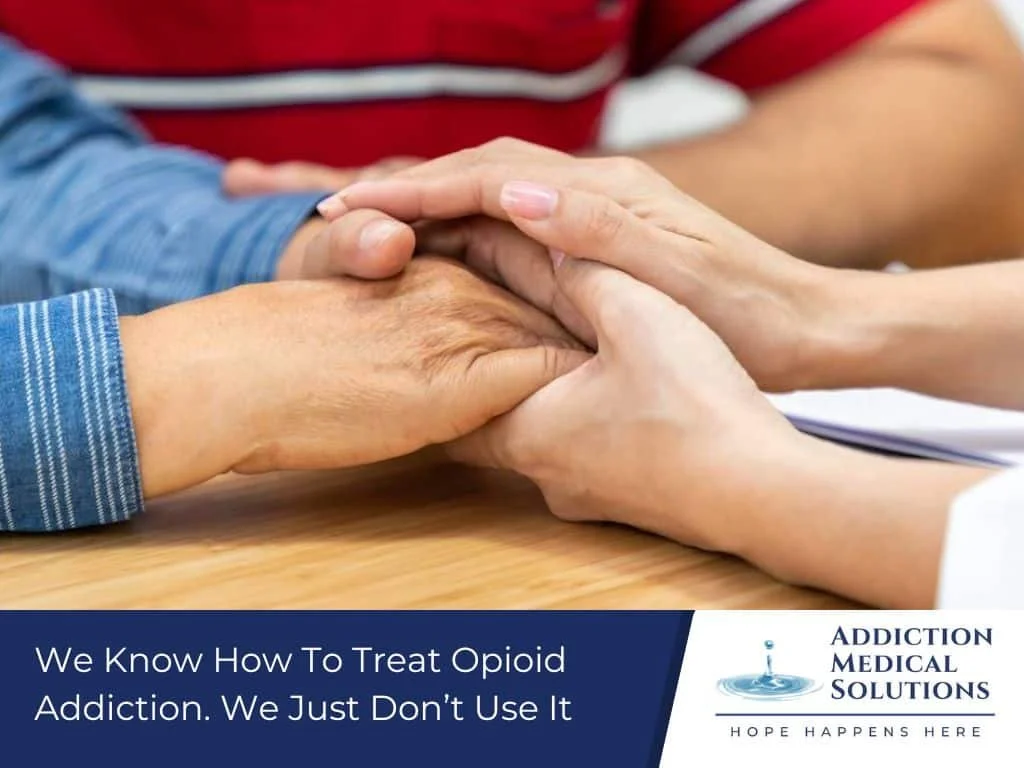We Know How To Treat Opioid Addiction. We Just Don’t Use It
When I was 22 years old, I was treated for an addiction to opioids. In the five years since, I wake up each morning and scan my news filters to read about some of the 78 people who die each day from overdose. Which depressed Rust Belt city was hit today?
The opioid crisis is one of few in public health that, despite all efforts, continues to worsen. Nearly 2 million people in the United States are addicted to painkillers and an additional 450,000 are addicted to heroin. Fortunately, we have a proven way of lowering the death rate and easing the ills of addiction: medication-assisted treatments like methadone and buprenorphine. Unfortunately, thanks to a moral and policy-driven opposition to these treatment techniques, we’re not using it.
The first hurdle comes from misunderstanding how medication-assisted treatment works. Here’s the science behind it: Our brain produces natural opioids. But with the continued flooding of external opioids like heroin, the brain gradually stops producing its own. An internally depleted opioid system leaves us constantly sore, sensitive to pain, depressed, fatigued but unable to sleep. When I was still addicted but not using, I always felt a pang of doom impossible to relieve. These medications—which are synthetic and semi-synthetic opioids—help stabilize users and staunch these side effects while giving the brain a chance to heal.
Once maintained on the right dose, the receptor sites are activated just enough to keep the opioid system sated without producing the intense highs and lows (the hallmark of addiction) of opioids like heroin. This gives the brain, and most importantly, one’s connection with the world, a chance to rebuild. Simply put, these medications hydrate a thirsty system. On these drugs we can work, drive, and behave virtually indistinguishably from ordinary Janes and Joes.
Research also consistently shows that methadone and buprenorphine save lives. A 2015 study in the U.K. compared 151,983 opioid dependent patients who received different kinds of treatment: It found that over four years those who received only counseling were twice as likely to die from a fatal overdose than those treated with medication. A 2014 study in New South Wales, Australia, found a similar result in opioid-dependent patients leaving prison: In this high-risk population, being on either methadone or buprenorphine meant the risk of dying was reduced by a staggering 75 percent.
The World Health Organization calls these medications “essential” because expanding access to them reduces crime, infectious disease, and death. In blocking access, these all rise.
Given all of this, it should come as a shock that only a quarter of patients who sought treatment for opioid-use disorders in the U.S. received these medications. This is particularly problematic because drug treatment programs have a notoriously high dropout rate. Those that are given these medications stay engaged in the process for longer than those who don’t use them.
Outside of the lab, certain areas provide a real-world testament to the medications’ effectiveness: In 1995, during an HIV outbreak in France, the government instituted what’s called a “low threshold model” that let doctors prescribe methadone and buprenorphine on demand. Since, 2004, France has seen a remarkable 80 percent reduction in overdose deaths. Baltimore did something similar in 1995 and by 2008, the city saw a 66 percent reduction in overdose deaths. In contrast, the rest of America makes it extremely hard for doctors to prescribe these essential drugs: Methadone can only be used to treat addiction at highly regulated clinics; and to prescribe buprenorphine, doctors must take an eight-hour course and apply for a special license from the Drug Enforcement Administration. They also have patient limits (which were recently

